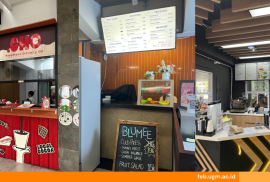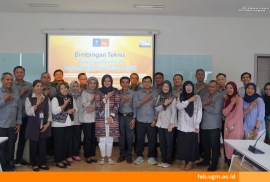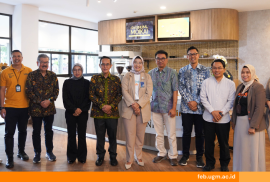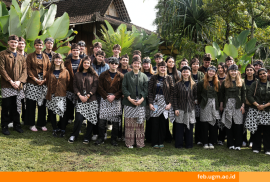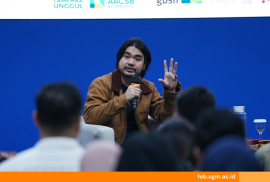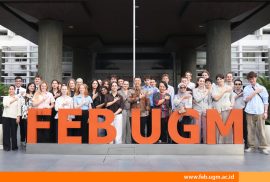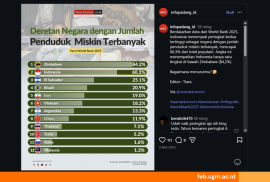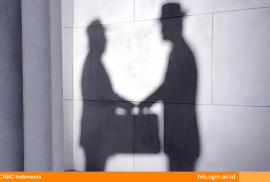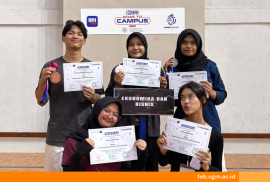In 2026, something new is happening at FEB UGM.
Accountable asset management is one of the key foundations of university governance.
Late-night email notifications, work messages on weekends, and the habit of completing tasks during break time have now become part of many workers’ routines.
Providing collaborative spaces is one of the key elements in building a productive and innovative academic culture.
The sound of kentungan (traditional bamboo slit drums), mask dances, and the warm welcome of villagers marked the beginning of an unforgettable cultural experience for international students of the Faculty of Economics and Business, Universitas Gadjah Mada (FEB UGM).
The role of universities as centers of knowledge development was a key focus of the talk show titled Higher Education for Impact & Adaptive Graduates, organized by the Faculty of Economics and Business, Universitas Gadjah Mada (FEB UGM).
The Faculty of Economics and Business, Universitas Gadjah Mada (FEB UGM), welcomed 51 international students through a series of orientation activities that introduced the academic environment of FEB UGM and the social and cultural life in Yogyakarta.
A widely circulated infographic on social media recently claimed that Indonesia ranks as the second-poorest country in the world, reporting a poverty rate of 60.3 per cent, compared with Zimbabwe’s 84.2 per cent, and attributed the figures to the World Bank.
Lecturer at the Department of Economics, Faculty of Economics and Business, Gadjah Mada University (FEB UGM), as well as the Poverty and Inequality Research Division/EQUITAS (Equitable Transformation for Alleviating Poverty and Inequality), Wisnu Setiadi Nugroho, Ph.D., said that the World Bank has never issued any documents through the Global Poverty Line, Poverty and Inequality Platform (PIP), nor the Macro Poverty Outlook that mentions Indonesia as the second poorest country in the world.
The shadow economy, economic activities that go unrecorded, poses a challenge to a country’s economy.
Victory does not come instantly. It grows from consistent training habits, maintaining performance, and the willingness to keep learning.
Can we help you?

